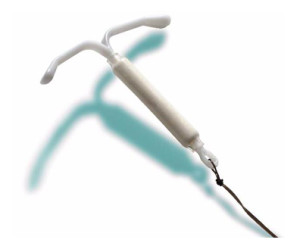Plaintiff Claims Mirena Caused Internal Organ Damage

Ashley Fleming of Louisiana has filed a Mirena IUD lawsuit against Bayer Healthcare Pharmaceuticals, alleging that the company’s birth control device inflicted severe internal organ damage.
Ms. Fleming filed her complaint on September 24, 2015 in the U.S. District Court for the Eastern District of Louisiana. She demands a jury trial and compensatory damages in excess of $75,000 for her medical expenses, pain and suffering, and other losses.
Plaintiff suffers lifelong complications
Mirena is a medical device inserted into a woman’s uterus for the purpose of preventing unintentional pregnancy. The device must be inserted and removed by a healthcare professional. Once within the uterus, Mirena releases levonorgestrel, a hormone, for up to five years. Levonorgestrel alters the uterine lining and cervical mucus to make it less likely that sperm will fertilize an egg or that a fertilized egg will implant to the uterine lining.
While the birth control pill has long been popular in the U.S., intrauterine devices (IUDs) such as Mirena have grown increasingly popular. Many women choose to use IUDs because they offer convenience and they are long-lasting. But some women have claimed to have suffered severe side effects as a result of the devices, including Ashley Fleming.
Ms. Fleming’s physician prescribed Mirena for her and inserted it on September 27, 2011. According to the lawsuit, the plaintiff’s doctor recommended the IUD for the plaintiff because of the defendants’ claims regarding the safety and effectiveness of the birth control method. However, at an unspecified point after the insertion of Mirena, Ms. Fleming suffered the spontaneous migration of Mirena. It became partially embedded in her uterus and migrated toward her cervix. The plaintiff was forced to have the device removed on September 25, 2014.
The plaintiff’s complaint demands compensation for her internal organ damage, physical injury, conscious pain and suffering, and bodily impairment, as well as for her past and future medical expenses, hospitalization, disfigurement, fear of death, and increased risk of death, deterioration, or disease. The plaintiff claims that as a result of the migration of Mirena, she has sustained lifelong medical complications.
Defendants’ marketing campaign under fire
In her lawsuit, Ms. Fleming contends that had she been aware of the serious risks associated with Mirena, she never would have consented to its insertion. The plaintiff states that the defendants “aggressively marketed Mirena devices and introduced a product into the stream of commerce which is dangerous and unsafe in that the harm of Mirena outweighs any benefit.” The lawsuit goes on to claim that the defendants knew that the safety of the device was not well established and that they chose to market Mirena despite this. Fraudulent concealment is among the allegations listed in the product liability lawsuit.
The lawsuit also mentions the defendants’ Simple Style program, which was a marketing tool that involved presentations by representatives associated with the defendants. The presentations were geared toward busy moms who might consider switching to Mirena.
The Simple Style program came under fire in 2009, when the defendants were contacted by the Department of Health and Human Services’ Division of Drug Marketing, Advertising, and Communication (DDMAC). DDMAC found that the presentations made unsubstantiated claims and failed to warn consumers of the serious risks of Mirena.


 Resources
Resources
 Resources
Resources
